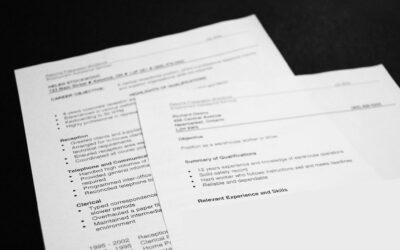Your first reaction may be to lash out or confront the employer. After all, you put in lot of time and effort in this job and you deserve it. So, you want to sit down and write a scathing letter to let them know how you feel about their poor decision making and it is their loss that they didn’t hire you.
Wait, consider a couple of things. First, consider the victory you just had. You were able to successfully navigate the process of job search. You crafted a winning resume and cover letter, networked to the decision maker and possibly passed one or two levels of interviews. You were successful! Celebrate your victory. If you were able to get that far, you know you can do it, it should give you confidence that you will be successful.
Second, I recommend that you write a very complementary letter thanking the interviewer for the opportunity to interview and how impressed you were with them and letting them know you would consider other opportunities with the company. This letter might read:
Dear <Hiring Manager>:
Thank you for the opportunity to interview with your company for the position of <Job Title>. While I am disappointed that I was not selected, I respect and understand your decision and wish you well and future success.I was especially impressed with <insert some fact that was discussed in the interview>. This is the kind of technology I am wanting to work with. I know that from time-to-time your company recruits for positions that more closely match my skills and I would be pleased to be considered for those positions.Again, thank you for the opportunity to meet you and your staff. I wish you and <company> success in the future.
 Why does this tactic work? It is an amazing fact that 50% of new hires fail in their new roles, with a large number leaving in the first 60 days. There are a couple of reasons why this happens,
Why does this tactic work? It is an amazing fact that 50% of new hires fail in their new roles, with a large number leaving in the first 60 days. There are a couple of reasons why this happens,
- Candidates oversell their abilities. It is never recommended, but often occurs, that candidates say “Sure. I can do that.” Once the company realizes that the new hire is not a right fit they initiate the separation.
- Many times in an active search a candidate may be interviewing for multiple positions. One company makes an offer but the second company is not ready to make the decision. Shortly after accepting the first offer, the second company makes a more desirable offer. The new hire makes the decision to accept the second offer.
Also, this kind of response is rare. It shows maturity and willingness to go above and beyond the normal. And it indicates you would probably be a good person to work with.
The key is to act as professionally as possible so you won’t burn any bridges with your contacts – because you never know when another job will open up that fits your background, skills and experience. The best thing you can do when you don’t get the job is to use it as a learning experience.
 Rick Christensen: Director, Career Transition Practice
Rick Christensen: Director, Career Transition Practice



